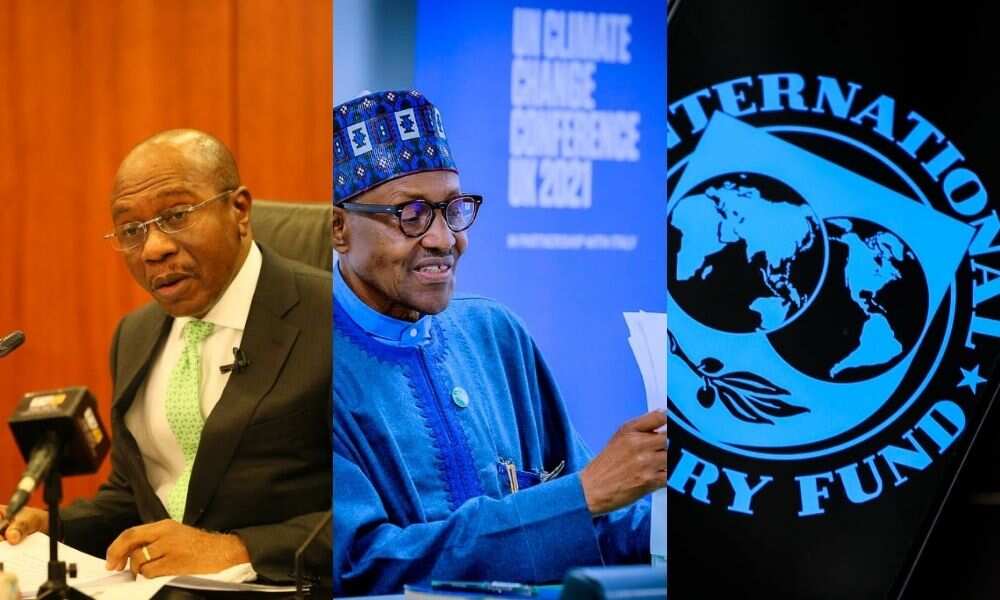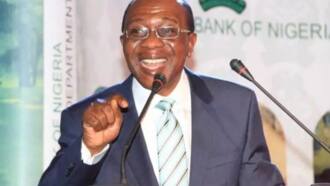IMF Asks Nigeria to Abandon Official Exchange Rate and Fuel Subsidy
- The International Monetary Fund is asking Nigeria to ditch the official exchange rate in favour of the black market
- According to the IMF, the black market is the true reflection of the exchange rate in Nigeria and asked the CBN to review its policies
- Also, it asked the Nigerian government to do away with fuel subsidy and use the funds in building infrastructure
PAY ATTENTION: Click “See First” under the “Following” tab to see Legit.ng News on your Facebook News Feed!
Despite the controversy surrounding fuel subsidy in Nigeria, the International Monetary Fund (IMF) has asked Nigeria to do away with subsidizing fuel and also asked the country to discard its current exchange rate.
The IMF said this in the Executive Board’s conclusion contained in Article IV consultation with Nigeria released on Monday, February February 7, 2022. The document reflects the organisation’s perspective on Nigeria.

Source: Getty Images
Nigeria backtracks from fuel subsidy removal
The Nigerian government, after canvassing for the revival of fuel subsidy, made a U-turn on January 24, 2022, and shelved its plans amid rising opposition to the plan in the country.
Do you have a groundbreaking story you would like us to publish? Please reach us through info@corp.legit.ng!
The government said the action will be revisited after 18 months and said it will work with the legislature to amend the Petroleum Industry Act.
Also, Nigeria’s apex bank, the Central Bank of Nigeria (CBN) has kept the exchange rate hovering around N415 per dollar, while the parallel market shows an exchange rate of N570 per dollar.
The IMF sees these policies as ineffectual and asked the government to ditch them to drive growth.
What the IMF is saying
The IMF’s Directors also urged the removal of untargeted fuel subsidies, with compensatory measures for the poor and transparent use of saved resources.
The body asked the CBN to unify the exchange rate by doing away with the official exchange rate in favour of the parallel market.
7 Important Things World Bank Advises President Buhari to Do in 2022
Legit.ng has reported that Among other things, the report revealed that Nigeria no longer benefits from high oil prices, owing to record low revenues and exorbitant fuel subsidies, according to The Cable.
The report also noted that Nigeria has the worst revenue-to-GDP ratio among 115 countries monitored by the World Bank.
To address the nation's economic challenges, the World Bank recommended some important policy decisions President Muhammadu Buhari and the Central Bank of Nigeria (CBN) should take, starting from the year 2022.
Source: Legit.ng


